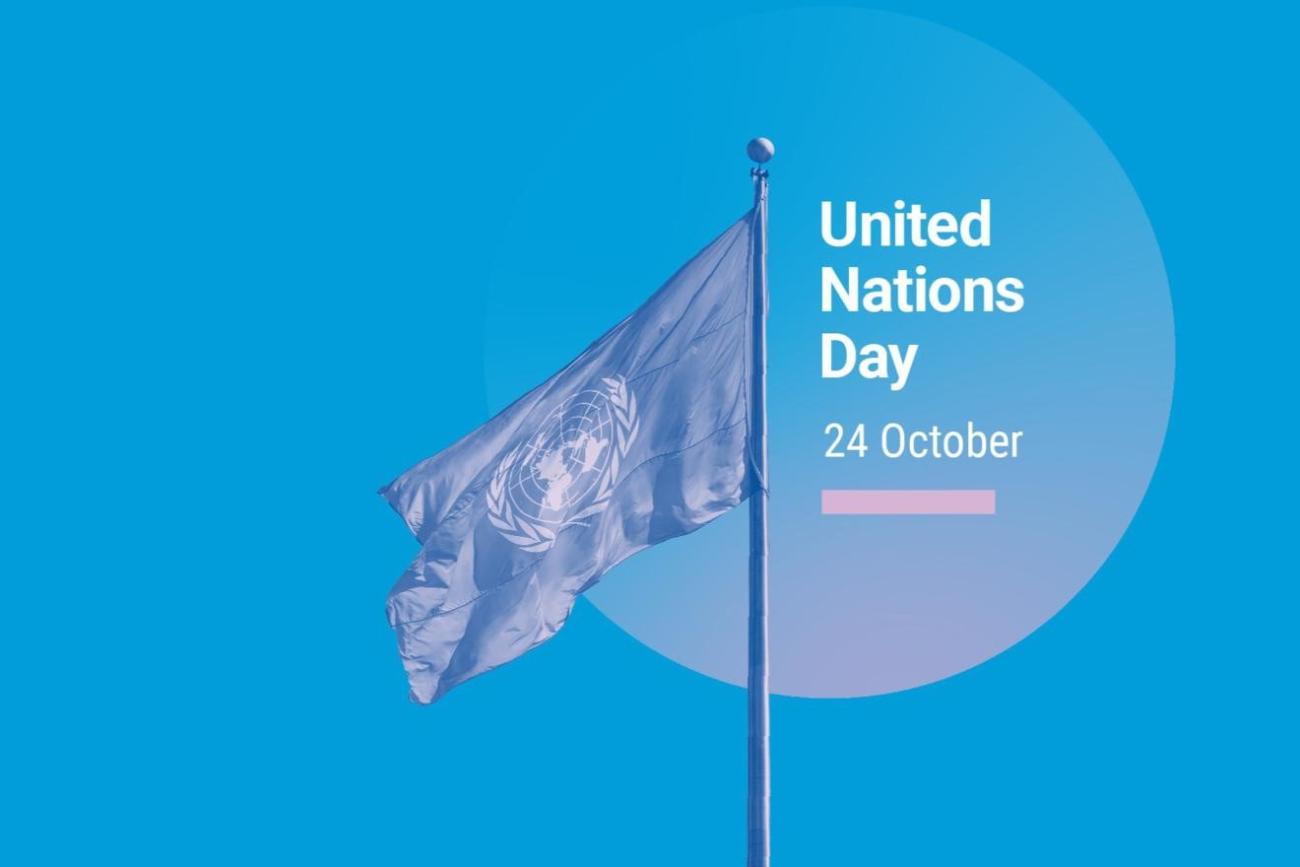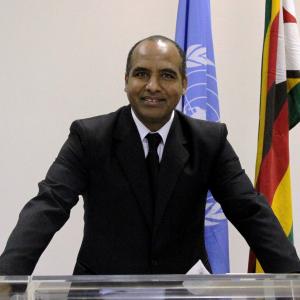UN at 79: Bridging Legacy and Innovation for a Sustainable Future

UN has been influential in establishing norms and treaties, such as the Paris Agreement on climate change and SDGs, aimed at ensuring a better future for all.
Seventy-nine years ago, the United Nations was founded in the aftermath of World War II, a bold response to the catastrophic fallout of global conflict. Established with the aspirational goal of promoting international peace, security, and cooperation, the UN has long stood as a cornerstone of multilateral diplomacy, championing human rights, humanitarian efforts, and sustainable development.
As the world marks this significant anniversary, it becomes crucial to not only celebrate the UN’s achievements but also to confront the pressing challenges it faces in the rapidly evolving world. Initiatives like UN 2.0 are now more pivotal than ever for ensuring the world body’s relevance and effectiveness in addressing contemporary issues.
A Legacy of Successes and Persistent Challenges
The UN's accomplishments are noteworthy. It has played a crucial role in preventing conflicts through peacekeeping missions in countries ranging from Cyprus to South Sudan. Over the decades, more than one million UN peacekeepers have served, often hailed as conflict resolvers and community builders.
The United Nations, along with its affiliated agencies, funds, and programmes, has played a critical role in combating hunger and poverty, promoting gender equality, improving quality education, increasing immunization efforts, and tackling global pandemics such as HIV/AIDS, COVID-19, and Ebola. Notably, the UN spearheaded initiatives that led to the eradication of smallpox in 1980, a milestone that saved numerous lives and demonstrated the effectiveness of international cooperation.
Moreover, the UN has been influential in establishing norms and treaties, such as the Paris Agreement on climate change and the Sustainable Development Goals (SDGs), aimed at ensuring a better future for all. The UN Development Programme (UNDP), through its initiatives, has significantly contributed to poverty reduction, with global poverty rates falling from 36% in 1990 to 10% in 2015.
However, challenges persist. Global inequalities are stark; hunger levels have regressed to figures last seen in 2005, with gender equality projected to be 300 years away. Only about 15% of the SDG targets are on track to be met by 2030. The advent of geopolitical tensions, climate change, and global pandemics require urgent and coordinated responses, highlighting the need for an adaptive and resilient UN.
One poignant human-interest story is that of the UN's efforts in Sierra Leone, where they provided critical post-conflict support that enabled thousands of former child soldiers to reintegrate into society, an effort that offers hope and future possibilities against the backdrop of war's devastating impact.
UN 2.0: A Vision for a Modern UN
Recognizing these challenges, the UN has embarked on a transformative journey termed “UN 2.0,” designed to modernize its system and equip it with 21st-century skills to deliver stronger results. The initiative, led by the UN Secretary-General Mr. Antonio Guterres, is driven by what is described as the “Quintet of Change”: innovation, data, digital advancement, foresight, and behavioral science.
- Innovation involves scaling new solutions, for instance, in healthcare, to broaden access and efficiency.
- Data ecosystems are being developed to aid diverse areas from agriculture to public policy.
- The digital transition emphasizes inclusive online education and digital fluency.
- Utilizing foresight involves navigating uncertainties like climate change, facilitating proactive adaptation.
- Behavioral science informs strategies to enable more effective and quality service delivery.
The UN 2.0 Policy Brief outlines a path towards a forward-thinking culture, emphasizing creativity, agility, digital literacy, and integrated solutions needed for today’s challenges. These internal shifts are intended to have a more substantial external impact, ensuring the UN system can support Member States more effectively and accelerate progress towards meeting the SDGs.
Six Transitions: Pathways to Sustainable Development
Central to achieving the SDGs is the concept of six transitions, vital pathways for investment and reform spanning economic, social, and environmental dimensions, recognizing their interconnectedness. These transitions include transforming food systems to address global hunger, rethinking energy systems to combat climate change, ensuring quality education, jobs and social protection, addressing climate change, restoring biodiversity and pollution, and advancing universal health coverage.
Each transition calls for just and equitable approaches, underpinned by the principles of human rights and inclusivity, ensuring no one is left behind. For instance, transitioning food systems must redress food insecurity, particularly among women and rural communities.
Transformative change like in Niger, where the UN's interventions in sustainable land management have led to the regreening of previously barren lands, stands as testimony to the potential of sustainable initiatives.
In the pursuit of accessible and affordable renewable energy, a notable achievement is unfolding in Hakwata village, Zimbabwe. Thanks to a collaborative effort between UNDP and the Government of Zimbabwe, with funding from UK Aid, a groundbreaking 200-kW solar mini-grid has been installed. This green village model is providing clean, reliable electricity to more than 100 homes and businesses for the first time. With a project valuation nearing US$2 million, this initiative represents a crucial step forward in achieving Zimbabwe's sustainable energy ambitions.
Additionally, through a concerted effort by UNESCO, UNCDF, UNDP, and UN Women, further progress is being made with the support of a $10 million grant from the global joint SDG Fund and a significant US$100 million blending funding from Old Mutual. This funding supports the Ministry of Energy and Power Development in fostering Public-Private Partnerships aimed at extending access to renewable energy to underserved communities and empowering micro, small, and medium enterprises. These initiatives underline a growing commitment to inclusivity and sustainable development, addressing energy disparity while promoting economic growth in Zimbabwe and in Africa.
Moreover, these transformations require enhanced governance, adoption of innovative technologies, data-driven decisions, and, crucially, transformed financing models. With an SDG financing gap of $4.2 trillion annually, mobilizing resources from all sectors—public, private, national, and international—is critical.
Ensuring the UN Charter as a Guide for Multilateralism
To ensure that the UN Charter remains the central pillar of multilateralism and “fit for purpose”, the United Nations continues to evolve and adapt to the changing world. This involves leveraging the wealth of expertise within its system, fostering strong partnerships, and aligning efforts towards common objectives.
Under the leadership of the UN Secretary-General, the UN 2.0 initiative stands out as a testament to this commitment. By facilitating both online and offline global participation, notably seen during the UN75 global survey, the organization is working diligently to promote transparency, accountability, and inclusivity. These efforts are key for fostering trust and participation among Member States and global citizens alike.
A prime example of this revitalization is the introduction of the UN Sustainable Development Cooperation Frameworks and the reinvigorated UN Resident Coordinator’s System at the country level to support Member States to achieve the SDGs. These initiatives highlight a renewed focus on actionable collaboration and effective governance, setting a promising path for the future of global cooperation. A success story is that of the rebuilding processes in post-earthquake Haiti, supported by the UN’s multifaceted approach, bringing together diverse actors for an inclusive and sustainable recovery.
By committing to continuous improvement and leveraging collective strengths, the UN can better facilitate the rapid transformations required to achieve the 2030 Agenda for Sustainable Development and its 17 goals. As the world commemorate nearly eight decades of the UN’s existence, it is important to acknowledge both its profound achievements and the necessity for bold, adaptive reforms.
Through initiatives like UN 2.0 and the six transitions, and by upholding the enduring spirit of the Charter, the UN can and will continue to serve as a beacon of hope and cooperation in the 21st century, ensuring a just and sustainable future for all.
Written by


















